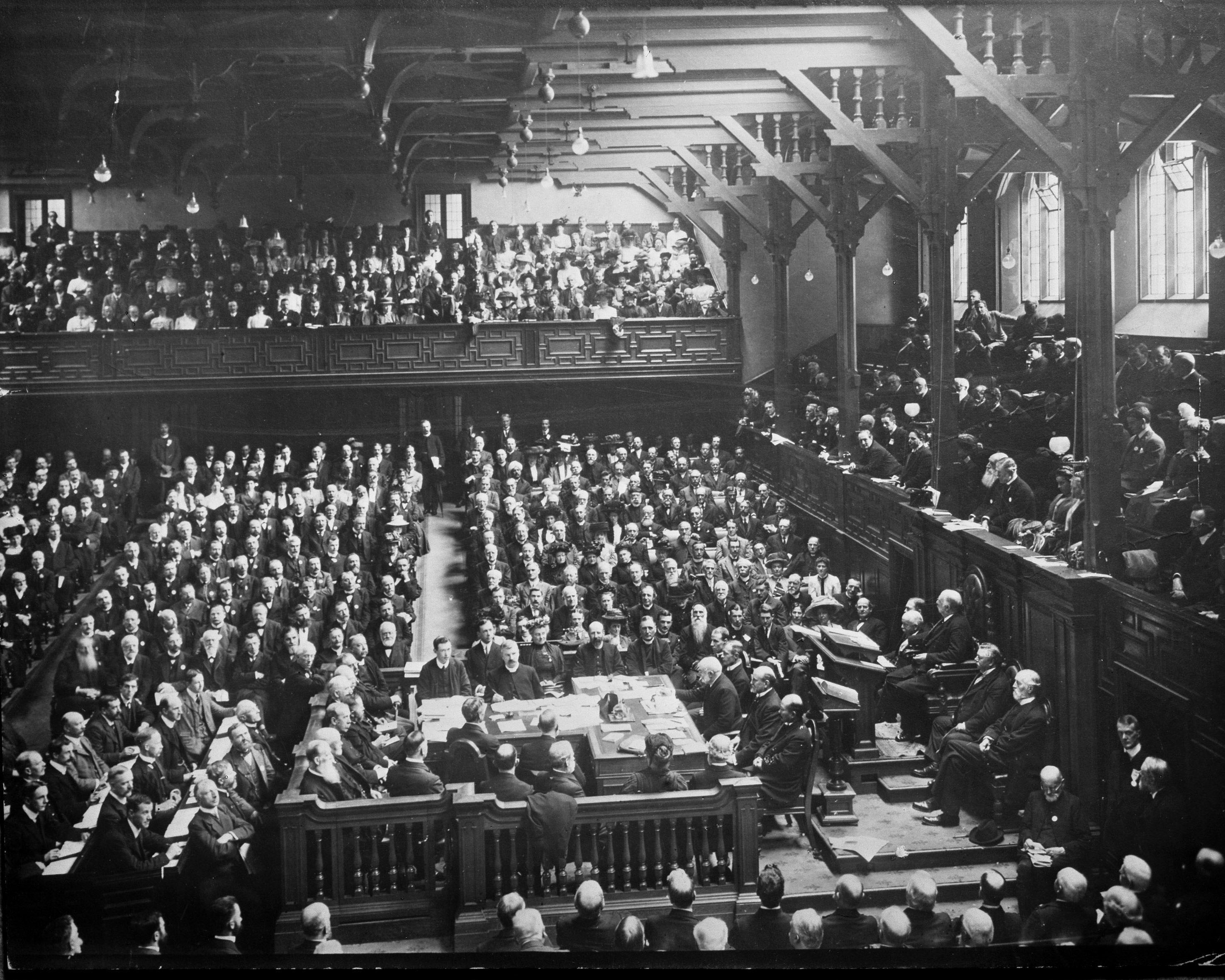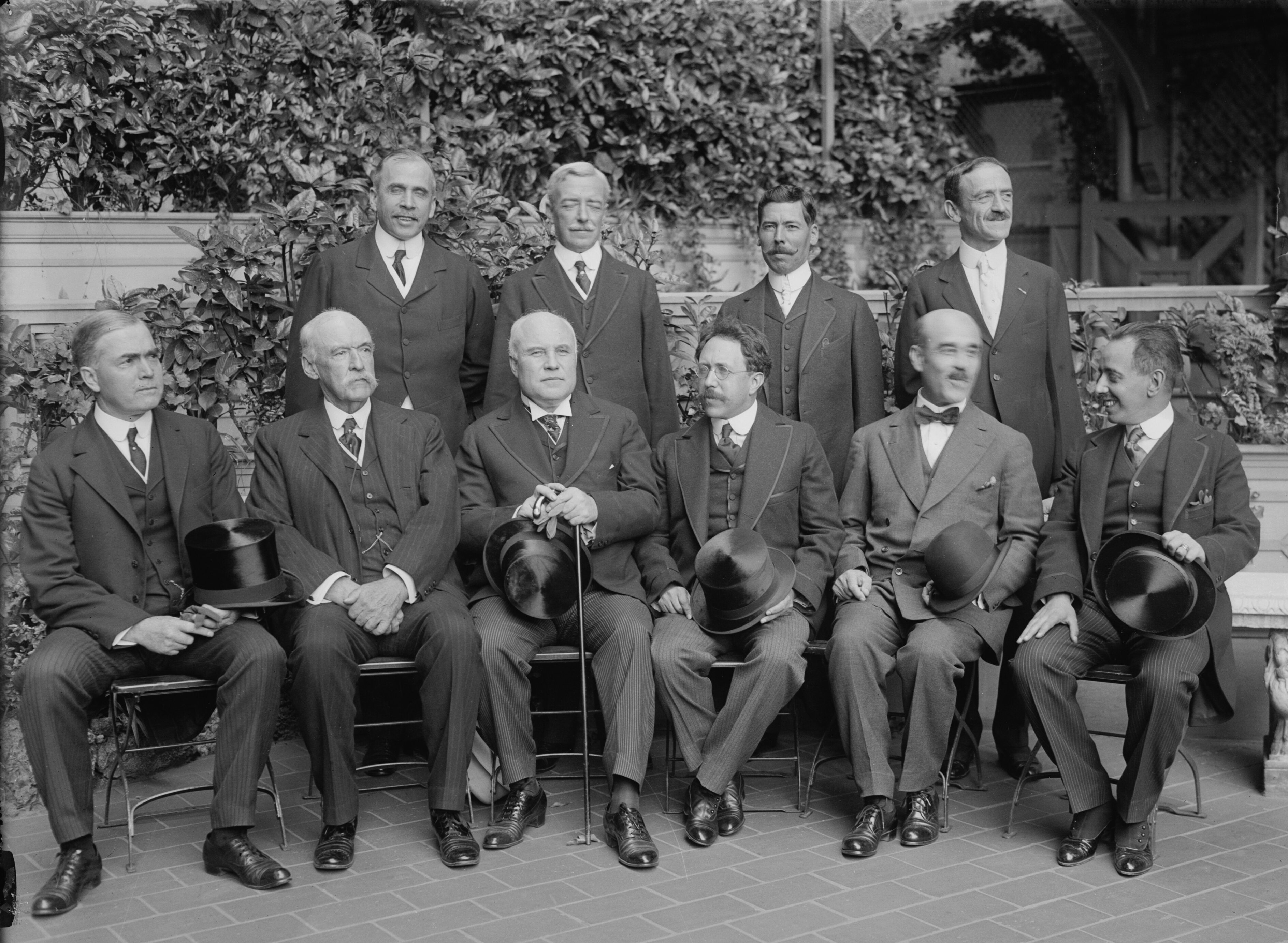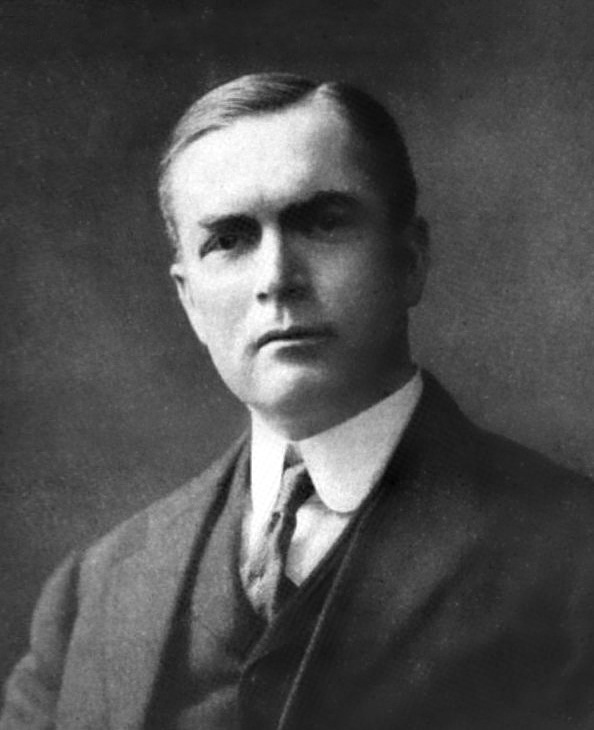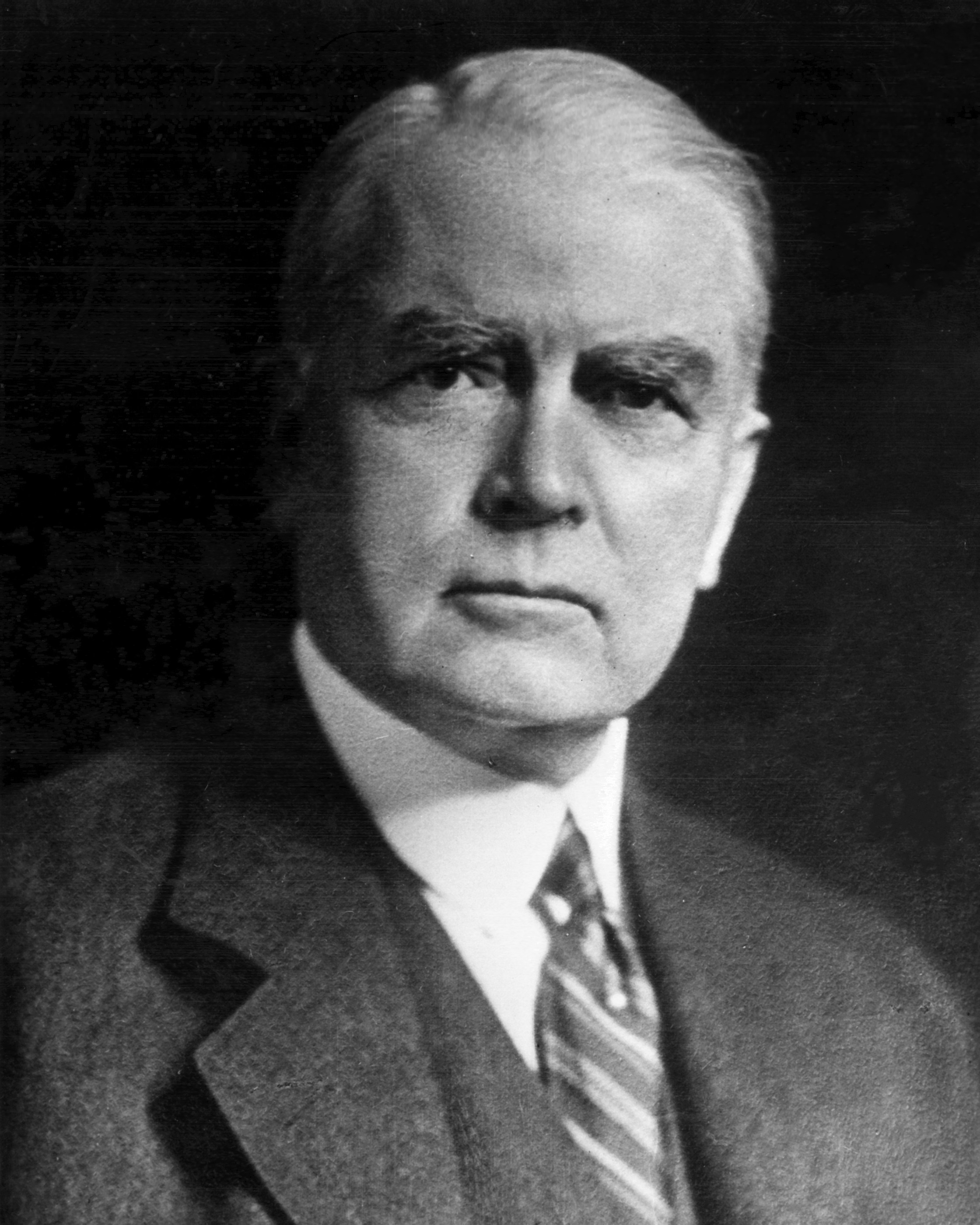1. Early Life and Education
John R. Mott's early life and educational journey laid the foundation for his lifelong commitment to Christian service and international cooperation.
1.1. Birth and Childhood
John Raleigh Mott was born on May 25, 1865, in Livingston Manor, Sullivan County, New York. His father was John Stitt Moot. In September of the same year, when Mott was just two years old, his family relocated to Postville, Iowa. He joined the Methodist Church at the age of 13.
1.2. Education and Early Influences
Mott began his higher education at Upper Iowa University in 1881, where he pursued studies in history and gained recognition as an award-winning student debater. He later transferred to Cornell University, where he earned his bachelor's degree in 1888. It was during his time at Cornell, which he entered at age 20 in 1885, that he embarked on his evangelistic work and was elected as the vice-chairman of the university's YMCA branch. Mott's early religious and social perspectives were significantly shaped by key figures such as Arthur Tappan Pierson, who was a driving force behind the Student Volunteer Movement for Foreign Missions, established in 1886. His dedication to Christian service was solidified after attending a summer school for college students in Mount Hermon, Massachusetts, where he was profoundly influenced by sermons from Dwight Lyman Moody and A. T. Pierson. A prayer meeting for world missions held at this event served as the genesis for the Student Volunteer Movement. Mott's encounter with J.E.K. Studd (brother of Charles Studd) at Cornell further inspired him to abandon his political ambitions and commit himself to Christian ministry.
2. Career and Ecumenical Activities
John R. Mott's career was marked by extensive leadership in global Christian movements, significant contributions to missionary efforts, and pioneering work in fostering Christian unity and international peace.
2.1. Early Christian Leadership
After graduating from Cornell University, John R. Mott immediately began his impactful career as a leader in Christian organizations. He became the secretary of the YMCA of the United States and Canada, traveling extensively to visit universities and colleges across both countries. From 1881 to 1915, he served as the student department head of the International YMCA. Mott was also a long-serving leader of the World Student Christian Federation (WSCF), serving as its General Secretary from 1895 until 1920. Following this, he was elected General Secretary of the YMCA and later became Chairman of the YMCA International Committee in 1926. From 1920 until 1928, Mott further served as the Chairperson of the WSCF, solidifying his role as a pivotal figure in global Christian student movements.
2.2. Role in World Missionary Conferences

A significant highlight of Mott's career was his leadership at the 1910 World Missionary Conference in Edinburgh. As an American Methodist layperson, he presided over this landmark gathering. The conference is widely regarded as an important milestone in the modern Protestant missions movement and is considered by some to be the genesis of the modern ecumenical movement. Following the conclusion of the conference, Mott was instrumental in establishing a Continuation Committee and served as its chairman. In this capacity, he actively worked to disseminate the spirit and outcomes of the conference across the globe, laying crucial groundwork for future ecumenical cooperation.
2.3. Contributions to the Ecumenical Movement
John R. Mott was deeply committed to fostering unity among Christian denominations, making profound contributions to the ecumenical movement. His efforts following the 1910 World Missionary Conference directly contributed to the eventual formation of the World Council of Churches (WCC) in 1948. Recognizing his central role and lifelong dedication, the WCC elected him as its lifelong honorary President. His work helped transition the vision of cooperation from missionary endeavors to a broader pursuit of Christian unity, making him a cornerstone figure in the establishment and growth of the global ecumenical movement.
2.4. International Peace Efforts and Nobel Peace Prize

Mott dedicated significant efforts to promoting international peace and understanding, which were recognized with the Nobel Peace Prize in 1946. He shared the prize with Emily Greene Balch. The award acknowledged his instrumental work in establishing and strengthening international Protestant Christian student organizations dedicated to fostering peace. Additionally, his contributions extended to humanitarian aid efforts following World War II. Mott also actively worked alongside Robert Hallowell Gardiner III to maintain crucial relations with the Russian Orthodox Church and Archbishop Tikhon in the aftermath of the Russian Revolution. His commitment to conflict resolution and humanitarian endeavors positioned him as a leading figure in global peace promotion.
2.5. Global Outreach and Asian Engagements
John R. Mott was renowned for his extensive international travels and missionary endeavors, earning him the reputation among some historians as "the most widely traveled and universally trusted Christian leader of his time." After touring Europe and promoting ecumenism, Mott embarked on a significant journey to Asia from October 1912 to May 1913. During this period, he organized and held a series of 18 regional and national conferences across various countries, including Ceylon (modern-day Sri Lanka), India, Burma (modern-day Myanmar), Malaya (parts of modern-day Malaysia), China, Korea, and Japan.
In Korea, Mott made several visits, delivering a notable sermon in 1907 to an audience of 6,000 believers, with Yoon Chi-ho serving as his interpreter. During this address, Mott prophesied that Korea would become the "Jerusalem of the East," implying its future as a leading Christian nation in Asia. He also played a role in assisting the establishment of the National Council of Churches in Korea.

His influence in Japan was equally profound, where he visited a total of ten times. During his visit in 1913, as the chairman of the Edinburgh Missionary Conference's Continuation Committee, he proposed a plan for cooperative evangelism to Japanese church leaders. To support this initiative, he contributed 20.00 K JPY. This proposal led to the planning of the "National Cooperative Evangelism" (全国協同伝道Zenkoku Kyōdō DendōJapanese), a three-year, nationwide evangelistic campaign that commenced in 1914. This campaign successfully mobilized 777,000 attendees and resulted in 27,000 converts, significantly contributing to the rapid growth and development of Japanese churches during the Taishō period. Furthermore, during his visits in 1925 and 1926, Mott delivered lectures to prominent figures in Japan's business and political spheres, exerting considerable influence. In recognition of his contributions, the Japanese government bestowed upon him the Order of the Sacred Treasure (First Class) in 1929.
3. Philosophy and Writings
John R. Mott's extensive career was underpinned by a clear set of theological and social philosophies, which he articulated through his numerous literary contributions.
3.1. Core Beliefs and Vision
John R. Mott's core beliefs centered on the urgent need for global evangelism, the vital importance of Christian unity, and the transformative role of Christianity in international affairs. His most famous slogan, "The Evangelization of the World in this Generation," encapsulated his fervent conviction that the global spread of the Gospel was an attainable and immediate goal for his era. This vision permeated his work with student movements and missionary conferences, driving his efforts to mobilize young people for missionary service and to foster cooperation among diverse Christian traditions. He believed that a united Christian front was essential not only for spreading the faith but also for promoting peace and understanding across nations.
3.2. Major Publications
Mott authored several influential books and papers that articulated his vision and significantly impacted the Christian world. His major publications include:
- The Evangelization of the World in This Generation (1900): This book articulated his famous slogan and became a foundational text for the missionary movement.
- The Decisive Hour of Christian Missions (1910)
- World Student Christian Federation (1920)
- Cooperation and the World Mission (1935)
- Methodists United for Action (1939)
- Five Decades and a Forward View (1939): An autobiographical account of his life and work.
- The Larger Evangelism (1945)
4. Personal Life
Beyond his public achievements, John R. Mott's personal life included significant family relationships and notable incidents that offered insights into his character.
4.1. Family and Relationships

John R. Mott was married twice. His first marriage was to Leila Ada White in 1891. Together, they had two sons and two daughters. Among their children were:
- Irene Mott Bose, who became a social worker in India and was married to Vivian Bose, an Indian Supreme Court justice.
- John Livingstone Mott, who was recognized with the silver Kaisar-i-Hind Medal in 1931 for his dedicated work with the YMCA in India.
- Frederick Dodge Mott, who pursued a career in healthcare planning in Canada and served as Canada's representative to the World Health Organization.
After Leila Mott's passing in 1952, John R. Mott remarried in 1953 to Agnes Peter, who was a descendant of Martha Custis Washington.
4.2. Notable Incidents
A significant personal anecdote in John R. Mott's life involved his narrow escape from the sinking of the Titanic in 1912. Mott and a colleague were offered complimentary passage on the ill-fated liner by a White Star Line official who was interested in their work. However, they declined the offer, opting instead to take the more modest liner, the SS Lapland. According to his biographer, C. Howard Hopkins, upon hearing of the Titanic's disaster in New York City, Mott and his colleague looked at each other and remarked, "The Good Lord must have more work for us to do." This incident is often cited as a testament to his providential survival and continued dedication to his life's mission.
5. Later Life and Death
The final period of John R. Mott's life was characterized by a continued engagement with his lifelong causes, culminating in his passing at a distinguished age.
5.1. Retirement and Final Years
In his later years, John R. Mott retired to Orlando, Florida, where he resided at 528 E. Washington Street. It was there that he received the news of his Nobel Peace Prize award. Even at the age of 89, he maintained his involvement in the global Christian movement, attending the World Council of Churches meeting in Evanston in 1954. During this gathering, he made a notable statement regarding his legacy, advising, "If John Mott dies, remember him as an evangelist." This remark underscored his enduring commitment to the mission of evangelism even as his life drew to a close.
5.2. Death
John R. Mott passed away on January 31, 1955, in Orlando, Florida, at the age of 89 years.
6. Legacy and Evaluation
John R. Mott's life and achievements have been widely assessed for their significant impact on Christian missions, the ecumenical movement, and international peace.
6.1. Historical Significance
John R. Mott's overall impact on Christian missions, the ecumenical movement, and international peace was immense and far-reaching. He is widely regarded as one of the most influential religious figures of the 20th century. His leadership in organizations such as the YMCA and the World Student Christian Federation mobilized generations of young people for Christian service and global engagement. His pivotal role in the 1910 World Missionary Conference and the founding of the World Council of Churches shaped the trajectory of modern Christian unity, fostering cooperation across diverse denominations. His tireless efforts in promoting peace, recognized by the Nobel Peace Prize, highlighted the practical application of Christian principles to international affairs and conflict resolution. Mott's long-term influence is seen in the continued vitality of ecumenical dialogue and the enduring commitment to global missions that he so passionately advocated.
6.2. Positive Reception
John R. Mott has received widespread positive reception for his numerous accomplishments and their profound impact. He is highly praised for his tireless work in establishing and strengthening international Protestant Christian student organizations, which served as crucial platforms for promoting peace and understanding across national borders. His dedication to both missions and ecumenism, alongside his efforts for peace, led many historians to consider him "the most widely traveled and universally trusted Christian leader of his time." His ability to bridge divides and inspire cooperation among diverse Christian communities and nations is consistently highlighted as a testament to his exceptional leadership and vision.
6.3. Criticism and Controversies
While John R. Mott's contributions are widely lauded, the available historical sources do not detail any significant criticisms or controversies related to his actions, decisions, or ideologies. His legacy primarily focuses on his achievements in promoting Christian unity, evangelism, and international peace.
7. Tributes and Memorials
John R. Mott has been honored through various awards, memorials, and institutions that commemorate his significant legacy.
7.1. Honors and Awards
During his lifetime and posthumously, John R. Mott received numerous significant recognitions for his global contributions:
- 'Nobel Peace Prize' (1946): Awarded jointly with Emily Greene Balch for his work in establishing and strengthening international Protestant Christian student organizations aimed at promoting peace, and for his humanitarian aid following World War II.
- 'Order of the Sacred Treasure' (First Class, 1929): Bestowed upon him by the Japanese government in recognition of his significant influence and contributions during his visits to Japan, particularly his efforts in inter-church cooperation.
7.2. Memorials and Institutions
John R. Mott's legacy is also commemorated through various institutions and honors:
- In 2022, John Raleigh Mott was officially added to the Episcopal Church liturgical calendar, with his feast day designated as October 3.
- The high school within the Postville Community School District in Postville, Iowa, where his family moved during his childhood, is named in his honor.
- His extensive collection of papers and archival materials are preserved and held at the Yale Divinity School Library, serving as a valuable resource for studying his life and the movements he influenced.